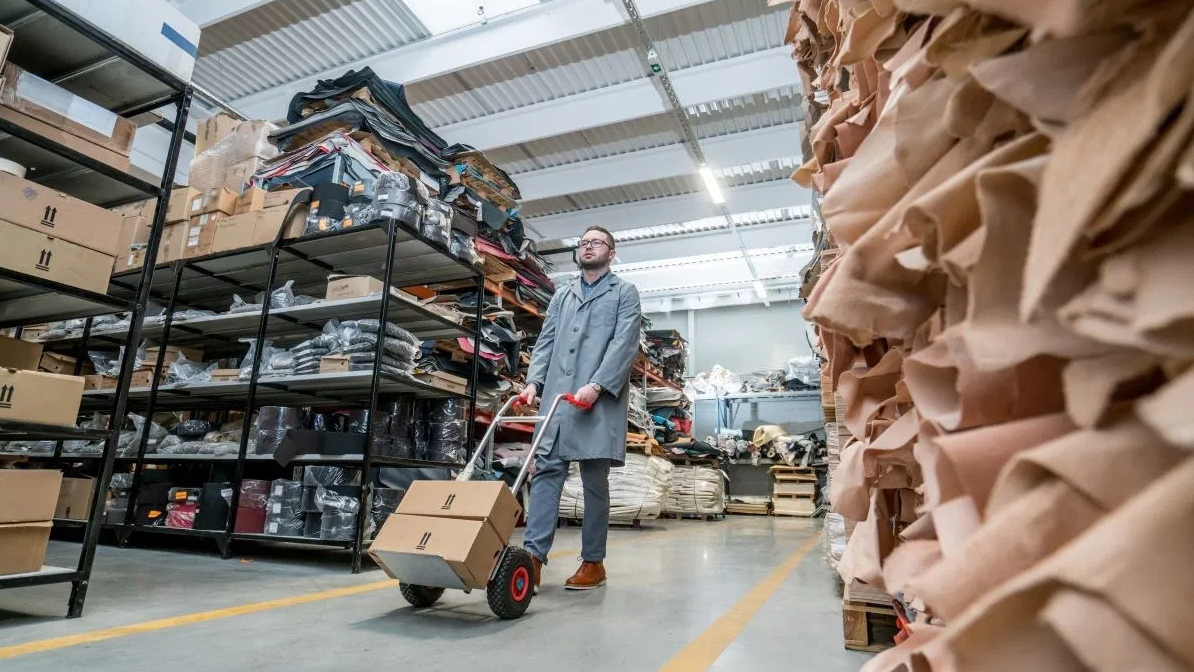China is easing lockdown measures, and production work is ramping up. How is this impacting global supply chains?
William McKinnon: We are starting to see some really interesting challenges. For example, the retail sector remains shuttered in North America and Europe but, since production in Asia is restarting, goods are arriving despite an inability to sell. This is creating a glut within companies’ distribution centres. Subsequently, we’re starting to see an interest in short term storage requirements for inventory builds in the retail sector.
So demand for space is actually increasing?
WM: I’m working with two customers right now, one in electronics and one in retail fashion, where product is either already on the water or is about to be produced. They know this product will sell eventually, but the consumer markets these companies are active within are still experiencing a slowdown due to Covid-19. So companies are inquiring with us to see if we’re able to store inventory for three months, or four months, for a variable but short term.
So this is the manifestation of what you described in our last interview—because of this disjuncture, companies are having to zero in only on what is guaranteed to sell.
WM: Exactly. I think some of the product which is season-dependent may end up on the discount racks in six months or so. Losing those sales during the typical selling period—April and May for summer retail products, for example—but still seeing a glut in production will prompt companies to try to offload that product however they can.
It’s been reported that commercial trucking is down nearly 30%.
WM: News media has reported transborder shipping being down 30%, but I don’t think this is because of a driver shortage. I see this as a result of a general decline in consumer purchasing. As a result, non-critical items are not being consumed the same way they once were.
I haven’t heard from my colleagues that they’re having difficulty recruiting drivers to do transborder work, despite what is being reported. If anything, there is more capacity to transport goods out there than there is demand.
People are focusing on needs over wants. We’ve discussed this in relation to the food supply chain; do you consider this to be occurring across industries?
WM: We’ve definitely seen similar fallout in other industries. We work with customers in the automotive industry as well and that sector is probably seeing about a third of the sales activity it would normally see. Automotive consumables are way down.
Is this because people are not using their cars as frequently while many of us are staying home to encourage social distancing?
WM: I think so, yes. We support products used as part of automobile maintenance and, because people are not driving around, there’s far less demand along those supply chains.
Similarly, many people are concerned about their jobs and the economy. So beyond forgoing the purchase of a new vehicle, people are looking to stretch the time between everyday expenses like oil changes and buying fuel.
Car dealerships especially are facing dire straits. As products, automobiles have a very low profit margin and this must be pressuring the entire industry.
WM: That’s right. They do make a lot of their money on the service side of things, rather than the equipment sales. There’s a greater margin, in fact, in used cars than there is in new cars. Given that a lot of these dealerships may not have sold cars in awhile, staying afloat, let alone creating profit, is a really difficult balance to strike.
Are you seeing this change in industries like fashion retail, as well?
WM: I was discussing this with a colleague the other day. He owns a sporting goods chain and now is the time of year that he would normally be booking in his fall and winter lines. This year, he’s decided not to order anything at all. He has summer stock in his stores right now and he’s concerned about his ability to move that product, let alone any new product later this year. There will be a real impact on fashion retail chains across the board. Many companies are probably making similar decisions right now, figuring out how to scale back their fall season.
But as we’re seeing these retail product gluts because Chinese factories have ramped up again.
The transfer of dollars that occur on an import-export basis, as well as the amount of tariff dollars collected, is absolutely huge. Restarting the economy is really about changing consumer perception about spending; getting away from the “scarcity” mindset which has people afraid to spend money because they are concerned about their employment.
Where else in the world are we seeing abnormalities like this?
WM: A few of our customers do import from Europe and that has all dried up. With the exception of a very small amount of specialty food product imported from Italy, everything has slowed or stopped. I think this is unequivocally due to the rampant spread of Covid-19.
What products, or industries, do you see as potentially endangered in the long term? As perhaps an inability to meet demand?
WM: I think the automotive industry is really at risk. The biggest gauge of the health of an economy is the sale of new cars and, given the damage that has been done to customer perception and the economy, I think the automotive industry is going to see a lot of consolidation. It could be a long time before people start buying cars again.
People might be inclined to buy used, or just put the purchase off—especially with the threat of a Covid-19 resurgence in the fall.
WM: I think in contrast, the healthcare industry, as a result of personal hygiene behaviour changes, will become even more robust. If you’re in healthcare right now, there’s more work than can be done—and that will attract more people and companies into the industry.
There’s been a fundamental shift. My niece is a community nurse and her patients are now so aware of the risks. They expect her to arrive in full personal protective equipment. Before, they were all extremely casual, but now she is expected to wear a face shield, gloves, smock, and mask.
Has Canadian Alliance’s response to Covid-19 measures allowed you to refine or discard any encumbered processes? Internally or in how you deal with clients?
WM: We’re trying to refine our processes to become as efficient as we can. Being more efficient means we can deliver our services to our customers at the lowest possible cost with the highest level of service. And we recognize that we’ll need to be even more efficient than we were before—customers will be more frugal in what they’re wanting to spend and we need to be efficient in how we deploy resources to earn their business.
From the perspective of a decision maker in the supply chain management business, is there anything in particular that you could point out?
WM: The teams and organizations in e-commerce have seen a huge increase in business, but this will only be fully actualized if they have good systems in place to support that growth. Not everything that comes out of this crisis will be controlled by Amazon. The surge in online purchasing will create more robust, competitive networks to compete with Amazon to get more goods to people. I don’t think Amazon can do it all.
Ultimately, it will be interesting to see how quickly the economy can right itself. But until we get back to full employment, it’s going to be tricky.

